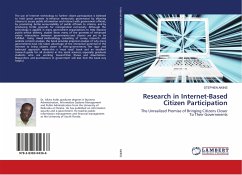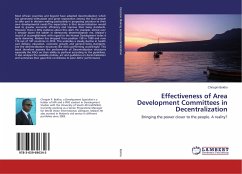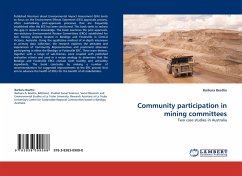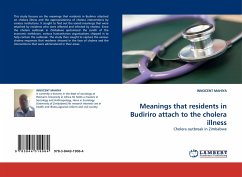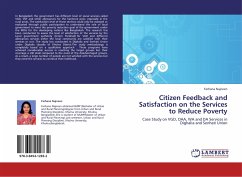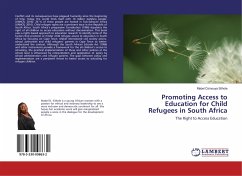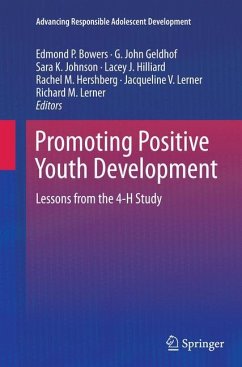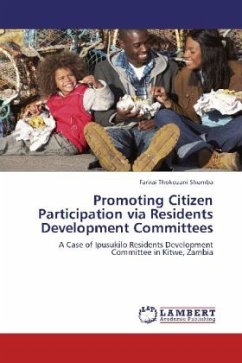
Promoting Citizen Participation via Residents Development Committees
A Case of Ipusukilo Residents Development Committee in Kitwe, Zambia
Versandkostenfrei!
Versandfertig in 6-10 Tagen
39,99 €
inkl. MwSt.

PAYBACK Punkte
20 °P sammeln!
The thrust of contemporary development thinking revolves around the notion of 'human centered development'. Numerous scholars in the devlopment discourse have alluded to the fact that this can only be achieved by providing grassroots communities a platform for participating in the development processs. Instituionalised participation through community based organizations such as Residents Development Committees is seen to be a lucrative conduit of communication between grassroots communities and local authorities. However, what is most important is the effectiveness of the relationship that exi...
The thrust of contemporary development thinking revolves around the notion of 'human centered development'. Numerous scholars in the devlopment discourse have alluded to the fact that this can only be achieved by providing grassroots communities a platform for participating in the development processs. Instituionalised participation through community based organizations such as Residents Development Committees is seen to be a lucrative conduit of communication between grassroots communities and local authorities. However, what is most important is the effectiveness of the relationship that exists between them. Residents Development Committees in Zambia were established in an attempt to improve service delivery particularly in informal settlements and peri-urban areas. They were first piloted in Lusaka through the collaboration between Lusaka City Council and CARE under the Peri-Urban Self Help Prgramme. Given the deplorable living conditions prevalent in both informal settlementsand pei-urban areas, this thesis sought to emperically assess the effectiveness of RDCs in facilitating participation of local residents for local community development.



